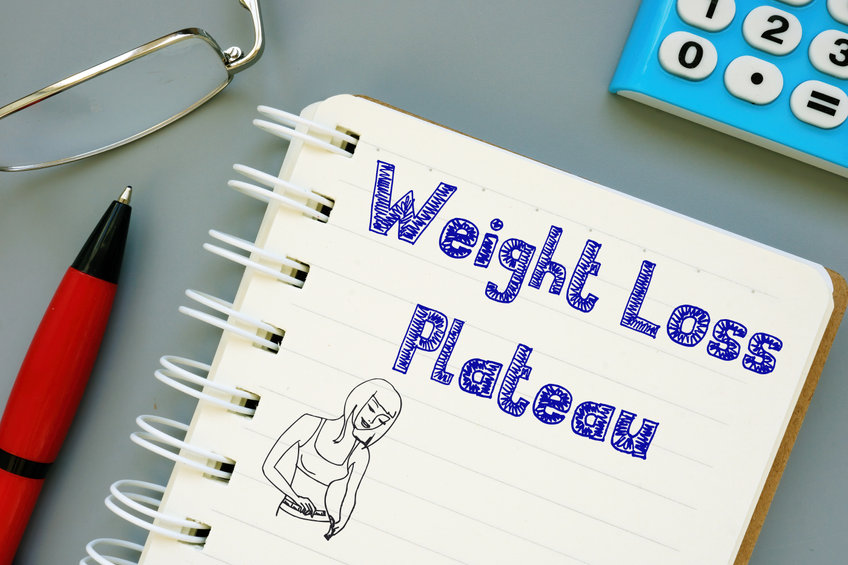How do you break through a weight-loss plateau? If you’ve ever tried losing weight, you know the frustration of stalled weight loss.
Everything’s going smoothly as you’re exercising, eating a healthy diet and feeling more energized. But then you notice your scale, which has been creeping down for weeks, suddenly won’t budge.
Cleveland Clinic’ Endocrinologist Shirisha Avadhanula, MD., explains that weight loss plateaus happen to everyone.
A weight-loss plateau is when you stop losing weight despite a consistent diet and exercise regimen that had previously helped you lose weight. Many of us wonder what we’re doing wrong, putting the blame on ourselves when the pounds stop falling. But that shouldn’t be the case at all, says Dr. Avadhanula.
“Weight loss is hard,” she says, “and every pound lost should be celebrated.” And while weight-loss plateaus happen because of something our bodies do, it’s through no fault of our own.
Why does it happen?
There are two main reasons why your body weight plateaus — one related to your hunger and one related to exercise.
1. Your body thinks it’s starving
Weight-loss plateau happens because while your mind might be focused on losing weight, your body is focused on maintaining what Dr. Avadhanula says is your “metabolic set point.”
“Your body is rather resistant to weight loss,” she says, “because there’s a set point at which your body thinks is its ideal weight and it’s determined by a number of factors.”
Those factors include:
• Your current weight.
• Activity level.
• Genetics.
When you begin losing weight, even with a healthy diet, your body still perceives that as starvation. “Your body thinks it’s starving and it begins a process of trying to counteract that, to get you to regain the weight you’ve lost,” she says. Your body produces regulatory hormones that increase hunger and make you feel less full in the hopes you’ll keep eating to reach that set point.
2. Your body becomes more efficient
Your body is also working against you when it comes to the exercise portion of your new weight loss routine. “As you exercise, your body becomes more efficient at conserving energy,” Dr. Avadhanula notes.
In other words, if you burn (for example) 300 calories during a workout on the treadmill at the beginning of your new exercise routine, your body will eventually adapt, becoming efficient enough that the number of calories you burn during that same work drops. “Instead of burning 300 calories in half an hour, for example, you might only burn 200,” Dr. Avadhanula explains.
And don’t look to friends or family for a sign of when you might hit that plateau point. As Dr. Avadhanula points out, our bodies are all different, so they’ll react to diet and exercise in different ways. “People plateau at different points. It really just depends on your body,” she says.
How do you get past the weight-loss plateau?
The best way to overcome the weight-loss plateau, according to Dr. Avadhanula, is pretty simple: more exercise.
There’s no particular increment of increase you need to hit to get over that plateau, she says. But one way to know if you’re on the right path is keeping track of how comfortable you are during your workout. “Exercising should be hard,” she says. Your body should feel some discomfort, within reason, during exercise. For instance, during a run, you’re probably sweating, breathing heavily and feeling the effects of the physical exertion.
If you get to a point with your exercise routine where you’re not breaking a sweat or feeling that exertion, though, that means your body is used to the exercise and you’re not burning calories at the same rate. Keeping tabs on your heart rate can be a useful tool in tracking how hard you’re working out.
Don’t mess with your diet
As long as you’re maintaining a healthy diet, there’s no reason to change it just because you hit that weight-loss plateau. “The most important thing with dietary habits is being consistent,” Dr. Avadhanula advises.
“One of the big misconceptions about weight loss is that there should be some sort of deprivation element to it,” she adds. “You need food to function. You’re looking to burn more calories in exercise than you take in via your diet but maintaining healthy habits with your diet is profoundly important.”
Click here to learn more on this topic.






